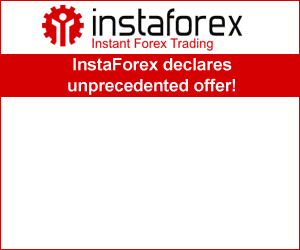2.Use Brokers comparative table: One page view of principal Brokerage firms' features.
3. Use “+ info” links: When detailed information of a Broker is required.
4. Open a Demo Account: Direct link to Brokerage firms’ Demo Account Platform.
5. Chat with a Broker: Anonymous conversation with a Broker representative.
6. Be contacted by the Brokers of your choice: Completing this form will ensure you are contacted by the selected Brokers.

General criteria to choose a Broker
1. Regulation
2. Market Maker vs. ECN (Electronic Currency Network)
3. How reliable is the trading platform of the broker?
4. Compare the costs of trading.
5. What are the real dealing size boundaries?
6. Is the trading platform really “user-friendly”?
7. Is the broker offering any added value services?
8. Is the customer support really cutting edge?
9. Leverage and margin call policies
Brokers Criteria
General criteria to choose a Forex Broker to trade with:
Before you decide to trade forex, you will have to choose which broker or dealer is the most compatible with your trading style and requirements. You should ask a few questions before opening an account with a forex broker to determine which company best meets your needs.
1. Is the broker or dealer regulated? If so, in which country is it regulated?
Not all countries regulate the same way, nor do they have the same regulatory environment and requirements when it comes to financial registration. Therefore, it is important for any investor/trader to choose a foreign exchange broker that is based in a country where their activities are monitored by a regulatory agency. It is also important to know if the broker or dealer is regulated in an on- or off-shore country, as the latter can be more liberal with registration requirements.
Countries with dedicated regulatory agencies include:
• USA
• UK
• Eurozone
• Japan
• Australia
• Switzerland
All types of traders need to be aware of their broker or dealer’s regulatory status and have a clear understanding of the regulatory body that governs forex activity where the selected broker or dealer does business.
2. Is the company a broker or a dealer?
Understanding the nature of a broker versus a dealer is always an important task, as there are currently a few different types of companies to work with for over-the-counter forex trading (OTC FX).
(a) Dealing directly with a market maker or “dealer.” Each market maker has a “dealing desk,” which is the traditional method that most banks and financial institutions use. Market makers provide two-way pricing to customers throughout the day. These prices sometimes are quoted on a “fixed” basis, meaning that they do not move throughout the day, while other firms use a dynamic spread system, which means the prices change as the liquidity in certain pairs change. The market maker interacts with other market makers banks to manage their global FX positions/risk. Each market maker offers a slightly different price in a particular currency pair based on their global FX book. Banks, investments banks, broker/dealers, and FCMs make up the majority of this category. Market makers are compensated by their ability to manage their global FX risk. This may include spread revenue, netting revenue, and revenue on swaps and conversions of residual profits or losses.
(b) Dealing with a broker. A broker acts as a conduit between a customer and a market maker/dealer. The broker sends the customer’s order to another party to be executed by the dealing desk of the market maker. The spreads that the customer receives are dependant on the market maker or dealer that the broker routes the customer’s transactions through, and either a fixed or dynamic system can be used. Brokers generally charge fees for this service and/or are compensated by the market maker for the transactions that they route to the market maker/dealing desk.
(c) ECN brokerage model. In OTC forex, there is currently a modified broker method labeled “ECN.” This is not to be confused with the ECN term used in equities; they are different models altogether. The concept in OTC FX is very similar to point b above, except for the fact that the ECN acts as a broker to a variety of market makers or dealing desks. Each dealer sends a price to the ECN as well as a particular amount of volume that a quote is “good” for, and then the ECN distributes that price to the customer. The ECN is not responsible for execution, only the transmission of the order to the dealing desk from which the price was taken. In this system, spreads are determined by the difference between the best bid and the best offer at a particular point in time on the ECN. In this model, the ECN is compensated by fees charged to the customer plus a “kick-back” or “rebate” from the dealing desk based on the amount of volume or order flow that it is given from the ECN.
It is important to point out that an ECN usually shows the volume available for trading each bid and offer, so the trader knows what maximum trade can be placed.


No comments:
Post a Comment